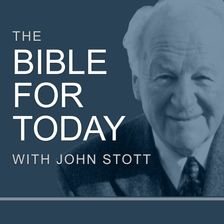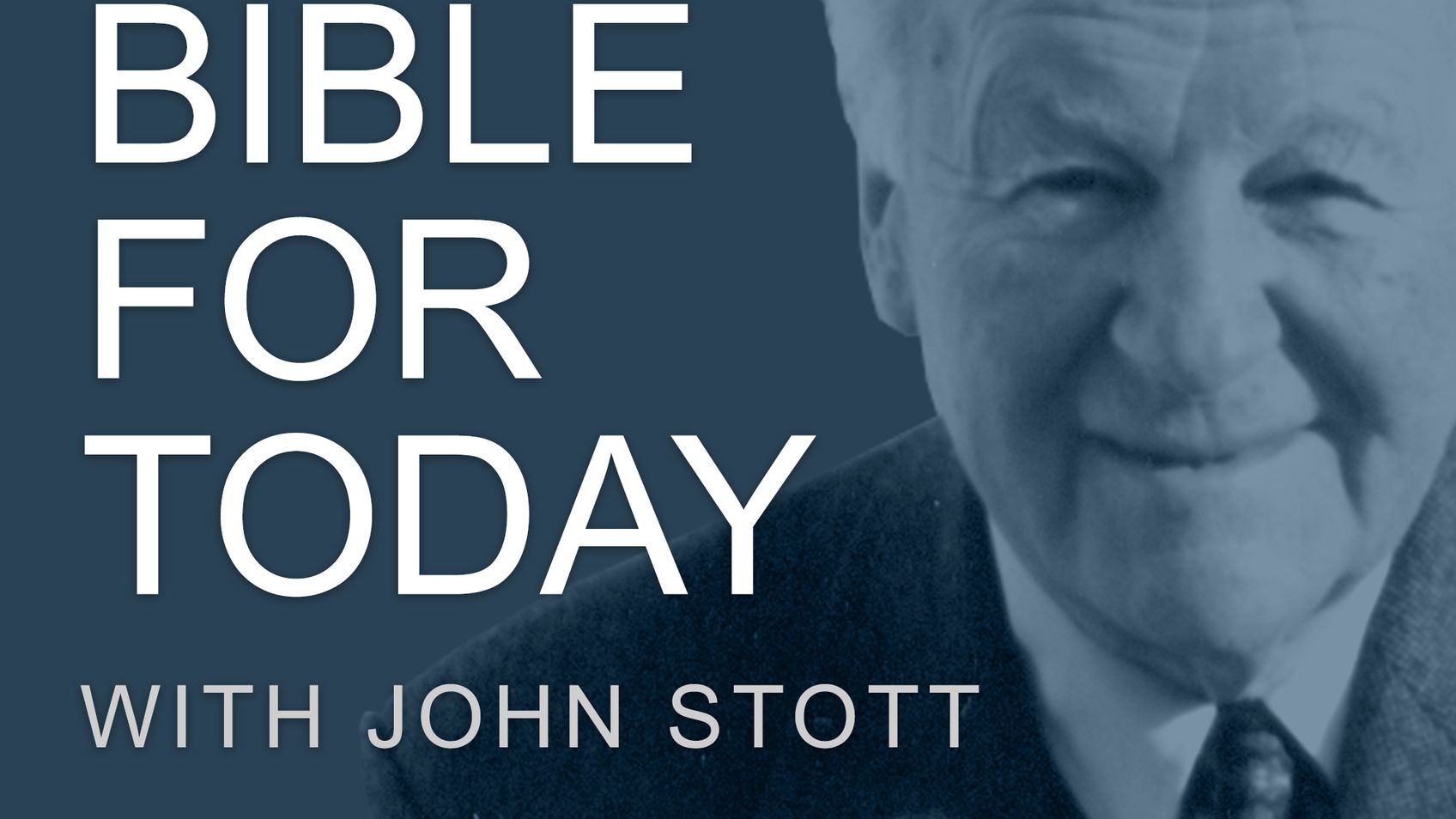Marks of a Healthy Church - Part 2
May 16, 2021

The Bible for Today with John StottPremier
John Stott shows how it is sometimes possible to avoid 'speaking truth to power' if it means receiving less opposition. He explains that there must be steadfastness in adherence to what the Bible says regarless of the cost.
More From The Bible for Today with John Stott

Jesus Christ: Tried, Tested And Proven - Part 1
The Bible for Today with John Stott
May 23, 2021
John Stott investigates how the church went from being a handful of people that Jesus gathered around Him to the world-wide phenomenum it is today.

Jesus Christ: Tried, Tested And Proven - Part 2
The Bible for Today with John Stott
May 30, 2021
John Stott shows that although we have never seen Jesus, there were many who did when He was on earth. Some of those people wrote down eye-witness acc

The Cross and God - Part 1
The Bible for Today with John Stott
June 6, 2021
John Stott shows how that the cross of Christ is not only a deed done for us but a word spoken to us. The cross demonstrates God's love to us despite

Marks of a Healthy Church - Part 1
The Bible for Today with John Stott
May 9, 2021
John Stott explains that while it is good to expect revival in the church, there are certain things that are necessary for this to happen. He shows th

The Spirit and the Bible - Part 2
The Bible for Today with John Stott
May 2, 2021
John Stott shows how that being faithful to the Bible can often result in the church facing opposition, and why we need to be steadfast in our belief

The Spirit and the Bible - Part 1
The Bible for Today with John Stott
April 25, 2021
John Stott explains how the Bible came into existance and how God spoke to individual writers through the inspiration of the Holy Spirit. John Stott s
More on OpenTheo

E. Calvin Beisner: Climate and Energy Policy
Knight & Rose Show
January 4, 2026
Wintery Knight and Desert Rose welcome Dr. E. Calvin Beisner to discuss climate and energy policy. They explore Biblical dominion and stewardship, con

The Heidelberg Catechism with R. Scott Clark
Life and Books and Everything
November 3, 2025
You may not think you need 1,000 pages on the Heidelberg Catechism, but you do! R. Scott Clark, professor at Westminster Seminary California, has writ

Why Should We Pray If God Already Knows What’s Going to Happen?
#STRask
January 29, 2026
Questions about why we should pray if God already knows what’s going to happen, how the effectiveness of prayer is measured, and whether or not things

Lora Ries: Border Security and Immigration Policy
Knight & Rose Show
December 7, 2025
Wintery Knight and Desert Rose welcome Lora Ries to discuss border security and immigration policy. They explore Biden's policy changes, like ending R

How Do We Advocate for Christian Policy Without Making the Government Interfere in Every Area of Life?
#STRask
November 20, 2025
Questions about how to advocate for Christian policy without making the government interfere in every area of life, and the differences between the mo

Sense, Sensibility, and Adam Smith with Jan Van Vliet
Life and Books and Everything
February 16, 2026
This year is a special anniversary for the United States as Americans celebrate 250 years of independence. But 1776 was an important year in more ways

The Man on the Middle Cross with Alistair Begg
Life and Books and Everything
November 10, 2025
If you haven’t seen the viral clip, go see it right now. In this episode, Kevin talks to Alistair about the preaching clip he didn’t intend to give, h

What Is Wrong with Wokeness? With Neil Shenvi
Life and Books and Everything
January 19, 2026
In this timely interview, Kevin talks to Neil Shenvi about his new book (co-authored with Pat Sawyer), entitled “Post Woke: Asserting a Biblical Visio

Prove to Me That Jesus Is Not a Created Being
#STRask
January 26, 2026
Questions about why we should think Jesus is not a created being, and what it means to say God became fully human if part of being human means not bei

Did God Create Us So He Wouldn’t Be Alone?
#STRask
November 3, 2025
Questions about whether God created us so he wouldn’t be alone, what he had before us, and a comparison between the Muslim view of God and the Christi

Are You Accursed If You Tithe?
#STRask
December 15, 2025
Questions about whether anyone who tithes is not a Christian and is accursed since Paul says that if you obey one part of the Mosaic Law you’re obliga

Why Is It Necessary to Believe Jesus Is God?
#STRask
February 19, 2026
Questions about why it’s necessary to believe Jesus is God, whether belief in the Trinity is required for salvation, and why one has to believe in the

How Can We Know Who Is Teaching the Same Gospel Paul Taught?
#STRask
February 16, 2026
Questions about how we can know who is teaching the same gospel Paul taught, and whether or not Jeremiah 1:5 supports the idea that we pre-existed in

Why Does the Bible Teach You How to Be a Proper Slave Owner?
#STRask
November 13, 2025
Question about why it seems like the Bible teaches you how to be a proper slave owner rather than than saying, “Stop it. Give them freedom.”
* It s

Are Demon Possessions and Exorcisms in the New Testament Literal?
#STRask
December 11, 2025
Questions about whether references to demon possessions and exorcisms in the New Testament are literal, how to talk to young children about ghosts, an
